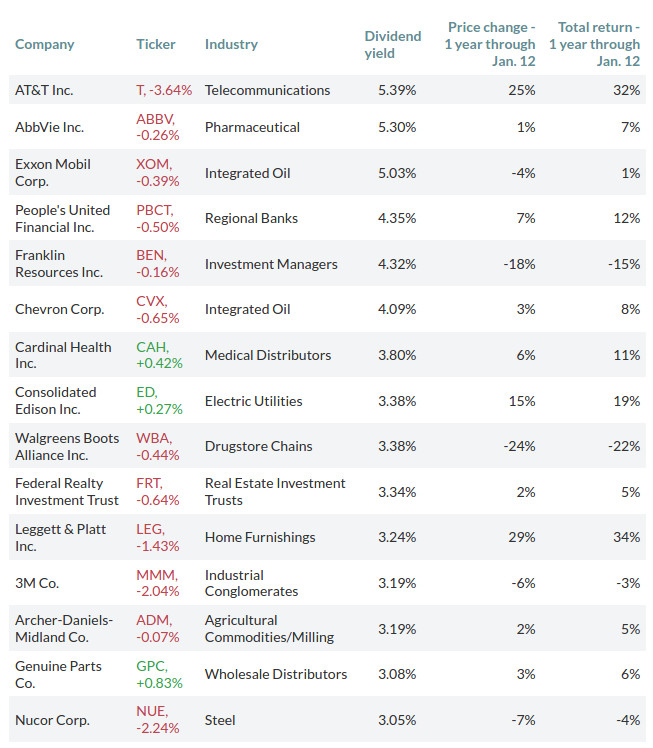Are you afraid of sky-high stock valuations? It may be a good time to consider dividend stocks for some of your portfolio, notes Jimmy Mengel, editor of The Crow's Nest.
The S&P Dividend Aristocrats companies that have raised their regular dividend payouts consistently. The group as a whole tends to be considered a growth investment, because many of the dividend yields are low and the group has outperformed the broader market over very long periods.
But today we’re going to focus on current income by simply listing the Aristocrats with the highest dividend yields. The financial media are understandably fixated on investment growth, but income has its place, especially if you need it and if you understand the incredible dividend tax advantage that U.S. investors enjoy.
The S&P 500 Dividend Aristocrats Index is a subset of the benchmark S&P 500 Index. The 57 Dividend Aristocrats have raised their regular dividend payouts for at least 25 consecutive years. It makes no difference how high or low the dividend yield may be.
An easy way to invest in the Dividend Aristocrats as a group is the ProShares S&P 500 Dividend Aristocrats ETF (NYSE: NOBL), which holds all 57 stocks with an equal weighting. The ETF was established in 2014. Indeed, we’ve owned NOBL for 5 years and are up 73% .
The Dividend Aristocrats Index has trailed for one, three and five years, but that underperformance is modest compared with how much it has outperformed the benchmark for 10, 15 and 20 years.
The difference may be put down to the compounding effect of reinvested dividends, but also to the dominance of technology companies during the extended bull market and the incredibly stimulative policies of central banks around the world.
Negative or very low interest make U.S. stocks a haven. The S&P 500 has a weighted aggregate dividend yield of 1.83%, nearly the same as the current yield on 10-year U.S. Treasury notes.
There are 15 S&P 500 Dividend Aristocrats with dividend yields above 3%. Here they are:

You can see that a long record of dividend increases and an attractive yield don’t necessarily mean the sailing is always smooth.
Being an Aristocrat also doesn’t necessarily mean a company isn’t in trouble or headed for it. As with any investment, you should do your homework and decide whether you think a company is poised for continued competitiveness for the next decade.










